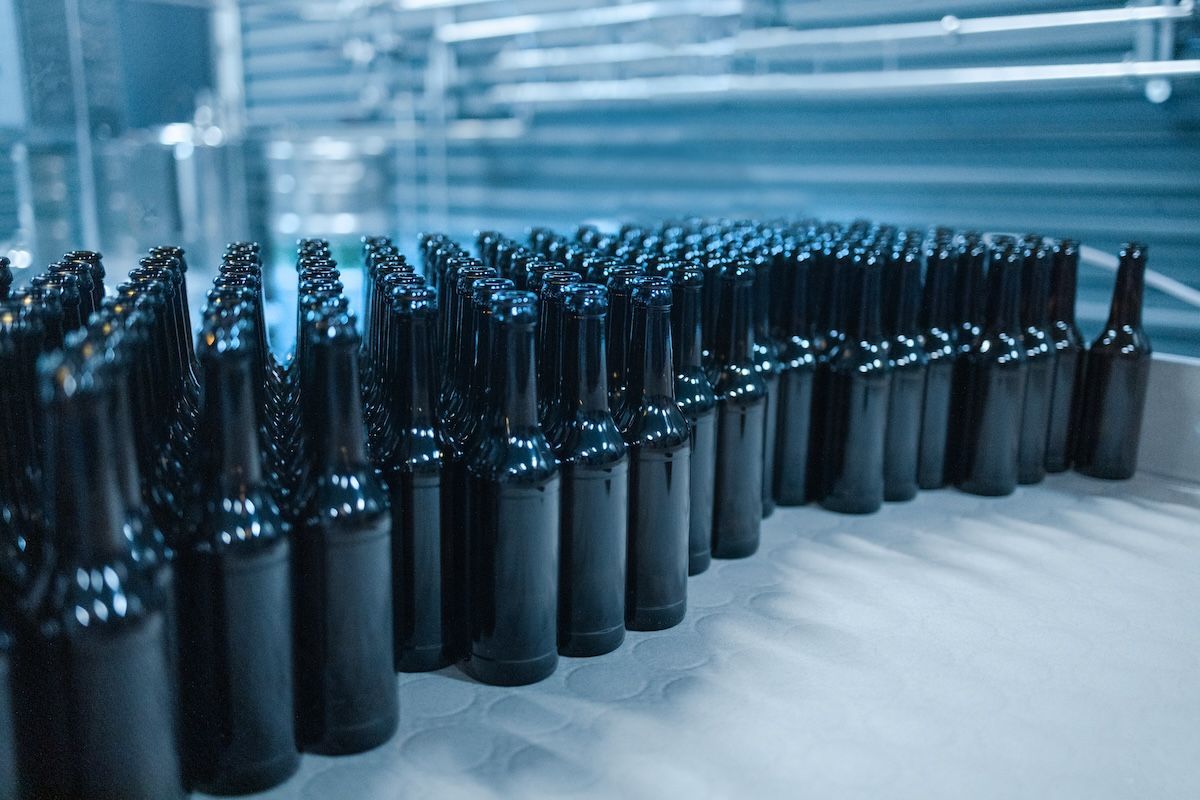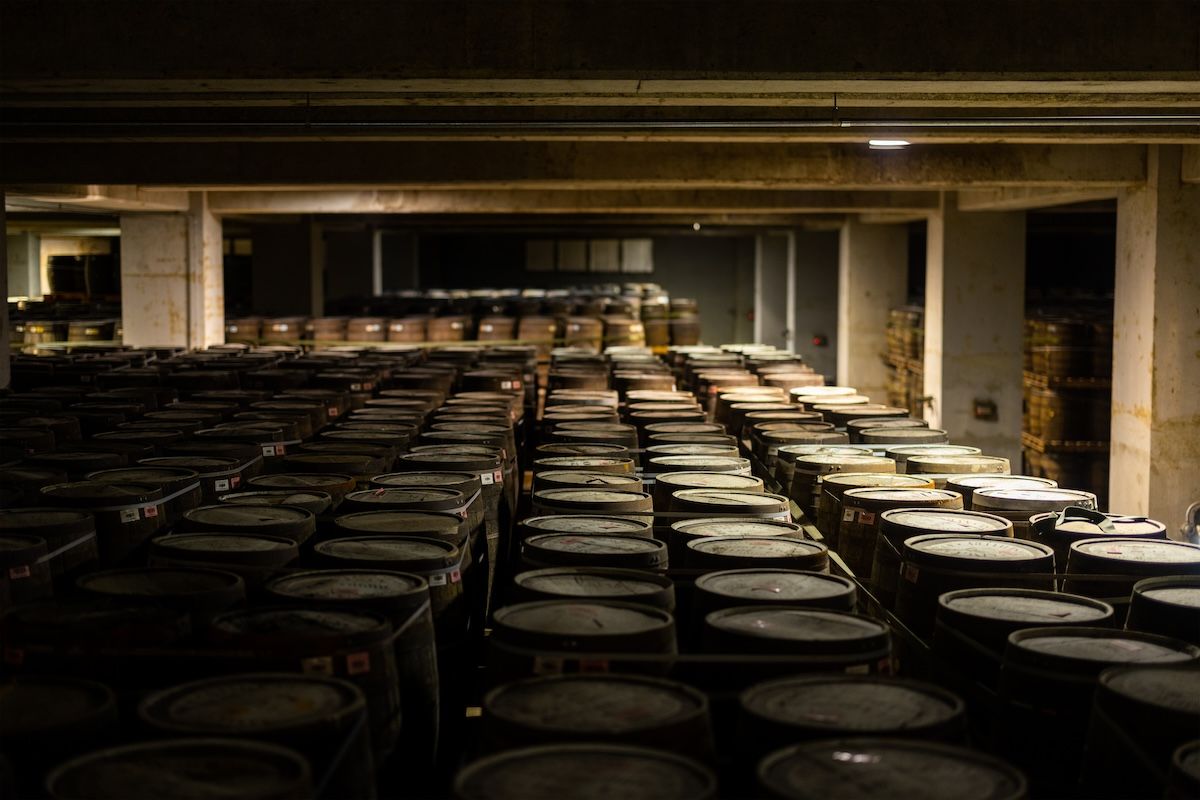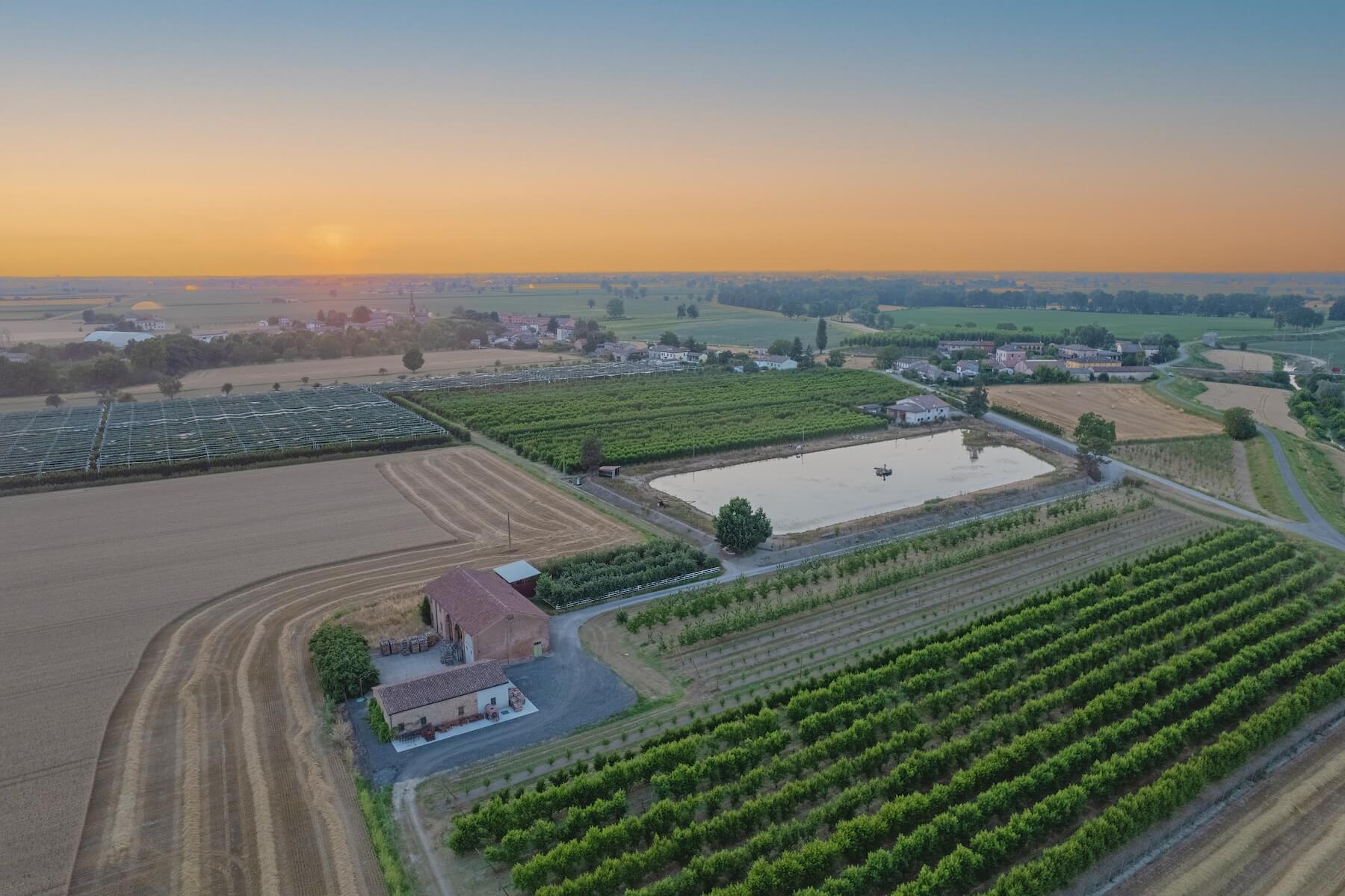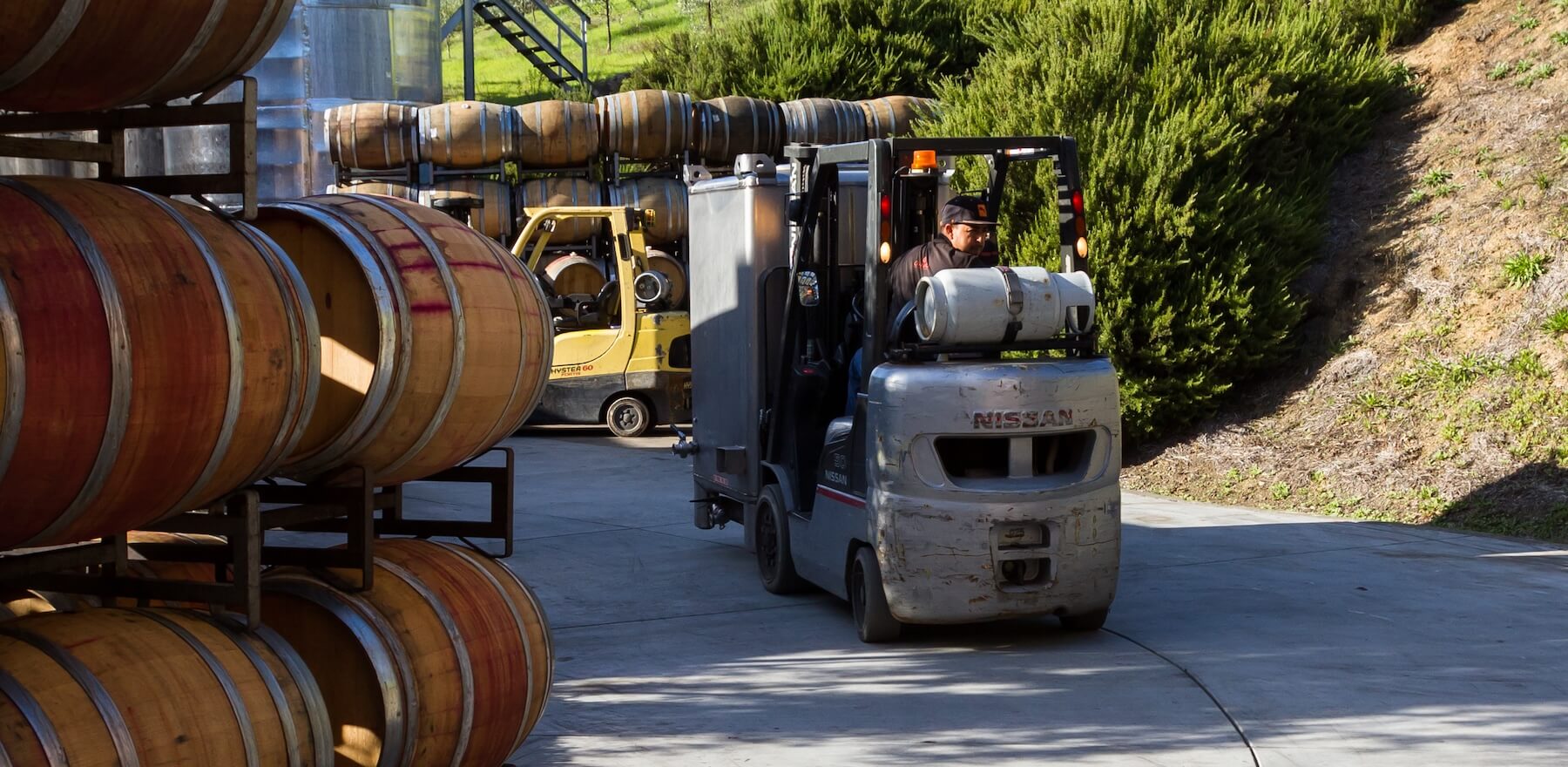In the evolving world of bev-alc production, where tradition meets innovation, new business models are continually emerging to meet industry challenges and consumer demands. Contract beverage production and alternating proprietorship stand at the forefront of these innovations, offering opportunities for both established industry giants and budding entrepreneurs. Let’s dive into these transformative trends to unravel their intricacies, benefits and potential challenges.
Understanding Contract Beverage Production
The beverage industry, with its rich tapestry of flavors, aromas and brewing techniques, has been a cornerstone of global cultures for centuries. But as consumer tastes evolve and market demands shift, the industry too is undergoing a transformation. One notable trend that has emerged is the rise of contract beverage production. Come again? Keep scrolling to learn what it is…and why it’s gaining traction.
The Rise of Contract Brewing and Distilling
Contract brewing and distilling refer to a business model where one manufacturer (often with excess production capacity) produces alcoholic beverages on behalf of another company. Instead of the latter investing heavily in equipment, facilities or the intricate nuances of production, they can rely on an experienced partner to produce their beverage to a specified recipe or requirement.
This arrangement has multiple advantages. For starters, emerging brands or those seeking to expand their offerings can tap into the market without the hefty initial investment that comes with setting up a production facility. On the flip side, established manufacturers with excess capacity can monetize their unused potential, ensuring their equipment and expertise don’t go to waste.
Exploring Alternating Proprietorship
Another bev-alc business arrangement that has been gaining attention is alternating proprietorship. It’s a concept that’s both innovative and rooted in collaboration, but for those unfamiliar with the term, it might raise eyebrows. Keep reading to discover what alternating proprietorship entails and the mutual benefits it can bring to the table.
What is Alternating Proprietorship?
At its core, alternating proprietorship (often referred to as “alt-prop”) is an arrangement where two or more breweries or distilleries use the same facility and equipment to produce their beverages. The company that owns or leases the facility is referred to as the “host,” while the other company, which essentially rents the space for its production, is called the “tenant.”
Think of it as a timeshare for the beverage world. Instead of a family using a vacation home during different parts of the year, brewers or distillers take turns utilizing a shared production facility. This allows each entity to maintain its distinct brand and product line, even though the beverages might be produced using the same equipment and space.
The Dual-Faceted Benefits
The beauty of alternating proprietorship lies in its mutually beneficial nature.
- For the Host: Often, breweries or distilleries with excess capacity find themselves burdened with overhead costs. By entering into an alt-prop arrangement, they can monetize this excess capacity to bring in additional revenue and ensure that their facility and equipment are used optimally.
- For the Tenant: Startups or smaller breweries and distilleries can begin or expand production without the significant financial outlay required to set up a new facility. This not only reduces initial capital expenses, but also allows them to focus on refining their craft, marketing plan and distribution model.
Moreover, both parties can benefit from shared knowledge, expertise and potentially collaborative ventures that might arise from working in close proximity.
Alternating proprietorship is more than just a business arrangement; it’s a testament to the collaborative spirit of the beverage industry. As the demand for a diverse selection of beverages grows and the market becomes increasingly competitive, such innovative solutions can pave the way for both established and budding brands to thrive.

Legal and Regulatory Implications
Venturing into the realm of contract beverage production and alternating proprietorship can be both exciting and profitable. However, it’s essential to tread with caution and awareness, especially when it comes to legal and regulatory nuances. The beverage industry, particularly the bev-alc sector, is heavily regulated, and these innovative business models introduce their own set of complexities.
Navigating Complex Beverage Laws
The legal framework surrounding bev-alc is intricate, with each state having its own set of licenses, rules and regulations. This complexity is further amplified when contract brewing or distilling and alternating proprietorship come into play.
For instance, if a brand owner is looking to contract with a manufacturer in a different state, ensuring that all parties involved have the appropriate licenses and are in full compliance with both states’ regulations is crucial. Non-compliance could lead to hefty fines, legal disputes or even the suspension of one’s ability to operate.
Avoiding Common Legal Pitfalls
Several misconceptions and pitfalls surround contract production:
- Federal Excise Tax Misunderstanding: Some producers erroneously believe that contract brewing might allow them to produce beyond certain thresholds while still benefiting from the lower federal excise tax rate designed for smaller producers. However, the TTB’s single taxpayer rule curtails this. It essentially establishes that entities producing beer under similar brands or arrangements will be considered a single taxpayer for certain tax considerations.
- State-Specific Regulations: Some states are more accommodating than others when it comes to contract beverage production and alternating proprietorship. It’s essential to research and understand state-specific regulations and, when in doubt, consult with legal counsel to ensure compliance.
- Interstate Sales: Selling across state lines, especially when contract brewing or distilling is involved, can introduce another layer of legal complexity. Brands need to ensure that they comply with the regulations of both the production state and the selling state.
Embarking on a journey of contract beverage production or alternating proprietorship can be a strategic move for many beverage manufacturers. However, being aware of the legal landscape and seeking expert advice when needed can ensure that this journey is smooth and free from unforeseen legal roadblocks.
The Role of Beverage Software in Contract Production
In the dynamic world of contract beverage production and alternating proprietorship, managing the intricacies of production, distribution and compliance can quickly become overwhelming. This is where specialized beverage software comes into play, offering tailored solutions that address the unique challenges these business models present.
Accounting for Contract Production
One of the most significant challenges in contract production is the accurate allocation of costs and revenue. Given that different entities are involved, it’s essential to have a clear breakdown of expenses and profits:
- Segregated Cost Centers: Beverage accounting software can assist in setting up distinct cost centers for in-house production and contract brewing. This allows for a clearer picture of profitability for each line of production.
- Transparency in Profit Margins: In many cases, a brewer might expect different profit margins from beer produced in-house compared to beer made by a contract partner. Specialized software can help track and analyze these differences, ensuring that financial expectations align with reality.
Efficient Data and Inventory Management
In an industry where precision and consistency are paramount, having an efficient data tracking system is crucial. Benefits include, but are no way limited to, the following:
- Lot Tracking: Especially important in alternating proprietorship scenarios, ingredients must be tracked in separate lots. This ensures accurate costing, compliance with excise tax reporting and traceability in case of quality issues.
- Inventory Across Multiple Locations: If you’re a tenant in an alternating proprietorship, your inventory might be spread across different physical locations. Beverage software can help manage this distributed inventory, ensuring accuracy in stock counts, order fulfillment and financial reporting.
- Shared Record Keeping: In situations where one facility reports operations for two or more license holders (as in an alt-prop arrangement), having a shared, yet distinct, record-keeping system is essential. This ensures that both parties have access to necessary data in a familiar format, fostering transparency and trust.
The introduction of specialized beverage software into contract production and alternating proprietorship scenarios is not just about streamlining operations; it’s about instilling confidence. With the right tools at their disposal, breweries and distilleries can focus on what they do best: crafting exceptional beverages while the software takes care of the intricate back-end processes.
Weighing the Pros and Cons
Contract beverage production and alternating proprietorship offer intriguing possibilities for breweries and distilleries looking to expand, optimize or diversify product lines. Yet, like all business models, they come with their own set of advantages and challenges. Let’s take a balanced look at what these arrangements can offer and the potential hurdles to consider.
The Upsides of Contract Production and Alt-Prop
For established producers who find themselves with excess capacity, the allure of contract production and alternating proprietorship lies in the optimal utilization of their production spaces. Instead of letting facilities and equipment gather dust, these arrangements breathe life into them, ensuring every nook and cranny serves a purpose. This not only optimizes physical resources but also opens up avenues for additional revenue. Hosts and contract producers can transform what might have been unused potential into profitable ventures.
But the benefits don’t stop at established entities. Emerging brands, or those with an eye on diversification, find in these models a golden ticket to market entry and expansion. The daunting barriers of heavy capital investments crumble, allowing brands to introduce new products or tap into fresh markets with relative ease.
Beyond the tangible benefits, there’s an intangible, yet invaluable, aspect: collaborative learning. When facilities are shared, or when one produces for another, there’s an inevitable exchange – a mingling of expertise, techniques and insights. This collaboration doesn’t just produce delicious beverages; it enriches the knowledge pool, fostering a community where learning is continuous and shared.
Potential Challenges and Drawbacks
While contract beverage production and alternating proprietorship present exciting opportunities, they’re not one-size-fits-all solutions. Some potential challenges and drawbacks include:
- Loss of Process Control: When outsourcing production, there’s an inherent loss of control. While standards and specifications are set, the actual production process is in the hands of another.
- Regulatory and Logistical Complexity: As discussed above, these models introduce added layers of legal, regulatory and logistical challenges. Properly navigating these requires diligence, expertise and often additional resources.
- Dependency Risks: Relying on another entity for production or using shared facilities can introduce risks. Any operational issues, delays or disputes can have cascading effects on one’s own business operations.
- Brand Perception: Some consumers value products made entirely in-house. There’s a risk that using contract production might affect brand perception among certain customer segments.
Breweries and distilleries must weigh the pros and cons considering their own goals, capacities and market positioning. With thorough research, careful planning and a clear understanding of both the upsides and downsides, these models can pave the way for growth, innovation and success in the ever-evolving beverage landscape.

Mi Casa, Su Casa
The beverage industry is in a state of dynamic evolution, with contract beverage production and alternating proprietorship emerging as transformative trends. These models offer breweries and distilleries the opportunity to optimize their operations, enter new markets and generate additional revenue streams. By partnering with established producers, emerging brands can tap into the market without significant capital investment, while producers with excess capacity can monetize their unused potential.
However, the complexities of these models are undeniable. From intricate legal landscapes and state-specific regulations to the challenges of managing inventory across multiple locations, the path is riddled with potential pitfalls. Specialized beverage software plays a pivotal role in navigating these intricacies, offering tools tailored to the unique challenges and use cases.
In essence, while contract beverage production and alternating proprietorship provide exciting opportunities, they demand thorough research, meticulous planning and a keen understanding of the industry’s intricacies. As the beverage landscape continues to evolve, these models serve as a testament to the industry’s adaptability and its unyielding quest for innovation.
Crafted ERP is the industry’s only end-to-end business management platform built to handle the intricacies of outsourced brewing or distilling. Our software is tailored specifically to craft beer and spirits production, with inherent features to handle multiple licenses, locations and entities. And with Crafted, whether you’re producing beverages for others or renting space for your own craft, we can handle the intricacies of compliance, tax reporting, revenue tracking and more.
Curious what we can do for you? Reach out to our team today for a personalized evaluation of your operations.





